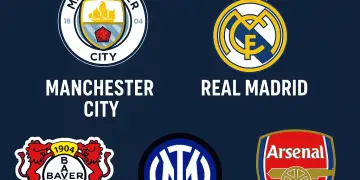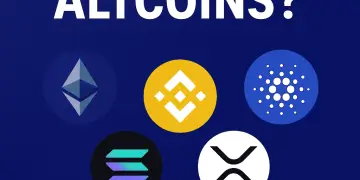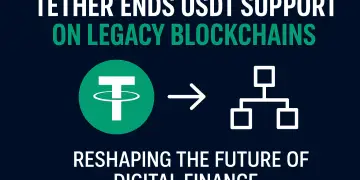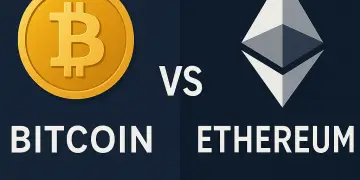A Legendary Homecoming
Few stories in modern football spark as much passion as a star returning to where it all began. Aymeric Laporte, once the cornerstone of Athletic Bilbao’s defense before rising to Premier League glory with Manchester City, is back in red and white. His return isn’t just symbolic—it’s transformative.
For Bilbao fans, Laporte is more than a player. He is a product of the club’s unique Basque-only policy, a philosophy that values identity over quick fixes. His journey—leaving San Mamés for City’s sky-blue dominance, then returning at the peak of his career—cements a narrative of loyalty, heritage, and unfinished business.
Why Laporte’s Move Matters
Laporte’s comeback is not just about nostalgia. It signals deeper currents shaping the transfer market:
- The Power of Identity in Football
In an era where oil-rich clubs often dominate with limitless spending, Athletic Bilbao’s philosophy reminds fans that heritage can compete with money. Laporte’s decision reinforces that cultural belonging is as valuable as financial gain. - La Liga’s Reputation Boost
Spanish football has long battled the narrative of being overshadowed by England’s financial muscle. Laporte’s return strengthens La Liga’s reputation as a competitive and emotionally driven league, capable of attracting global stars back from foreign dominance. - A Market Shift Toward Sustainability
Laporte’s move highlights a growing emphasis on sustainability over constant big-money transfers. Clubs across Europe are re-evaluating how loyalty, identity, and long-term planning can be just as important as splashy signings.
Athletic Bilbao’s Strategic Win
For Athletic, this is more than just a transfer coup—it’s a masterstroke.
- Defensive Stability: Laporte brings world-class experience, having won multiple Premier League titles and competed at the highest European levels. His tactical awareness, composure on the ball, and aerial dominance are assets Athletic desperately needed.
- Mentorship for Youth: Athletic’s academy, Lezama, thrives on homegrown talent. Laporte’s presence will accelerate the growth of young defenders, instilling professionalism and a winning mentality.
- Fan Morale and Brand Value: Beyond tactics, this signing electrifies fans. Merchandise sales, ticket demand, and global visibility will soar. It’s a reminder that Bilbao remains a beacon of tradition and ambition.
The Manchester City Angle
For Manchester City, letting Laporte go also makes strategic sense. With Pep Guardiola’s defensive options—Rúben Dias, John Stones, Manuel Akanji, and Josko Gvardiol—the squad depth is immense. Laporte’s departure eases competition and allows him to play a central role elsewhere instead of being a rotational option.
It also reflects City’s pragmatic approach: selling players at the right moment while maintaining squad balance. This move may set a precedent for other elite clubs to allow respected players dignified exits rather than prolonged bench spells.
A Signal to the Transfer Market
Laporte’s return challenges assumptions about player movement:
- Players Prioritizing Legacy: Increasingly, stars may choose emotional fulfillment over maximum salaries. Laporte could inspire others to return to their roots, strengthening the trend of legacy-driven moves.
- La Liga as a Destination Again: With Laporte back, and players like Jude Bellingham choosing Spain, La Liga is quietly regaining appeal as a top destination—not just a feeder to the Premier League.
- Clubs Focusing on Symbolic Signings: Beyond talent, signings that connect with fan culture have measurable benefits. Laporte’s return isn’t just sporting—it’s branding, community, and identity.
Fans’ Emotional Connection
Football isn’t only about trophies; it’s about stories. Laporte’s return writes one of the most compelling chapters in modern La Liga. Athletic fans see it as validation: their club, bound by tradition, can still attract players who value passion over excess.
It’s also a message to younger generations: success abroad doesn’t erase where you came from. In a market often criticized for being soulless, this is a story with heart.
The Road Ahead
Laporte’s immediate challenge will be to help Athletic Bilbao compete for European places and trophies. His leadership, combined with Athletic’s promising youth core, could push the Basque club into contention for Copa del Rey glory or even a top-four La Liga finish.
More broadly, his return may inspire a wave of emotional transfers across Europe—reminding players and fans alike that football is at its best when heritage and ambition collide.
Frequently Asked Questions (FAQs)
Why did Aymeric Laporte return to Athletic Bilbao?
Laporte returned to Athletic Bilbao to reconnect with his roots, enjoy consistent playing time, and contribute to a club that shaped his career. It was a move driven by heritage and personal fulfillment, not just money.
What does Laporte’s return mean for Athletic Bilbao?
It strengthens the team defensively, boosts youth development, and energizes fans while reinforcing the club’s identity-based transfer philosophy.
How will this move affect the transfer market?
Laporte’s decision highlights a trend of legacy-driven moves, challenges the Premier League’s dominance, and underscores the growing importance of sustainability and cultural connection in transfers.
Did Manchester City benefit from this transfer?
Yes. City maintained squad balance, respected Laporte’s desire for regular football, and demonstrated a player-friendly exit model that could attract future talent.
Can Athletic Bilbao compete for major titles with Laporte?
While challenging giants like Real Madrid and Barcelona remains tough, Laporte’s presence improves Bilbao’s chances in La Liga’s top six and in domestic cup competitions.
Final Thoughts: A Transfer That Transcends Football
Aymeric Laporte’s return to Athletic Bilbao is more than a signing—it’s a declaration. It shows that football’s greatest strength lies not only in money but in identity, loyalty, and heritage.
































































